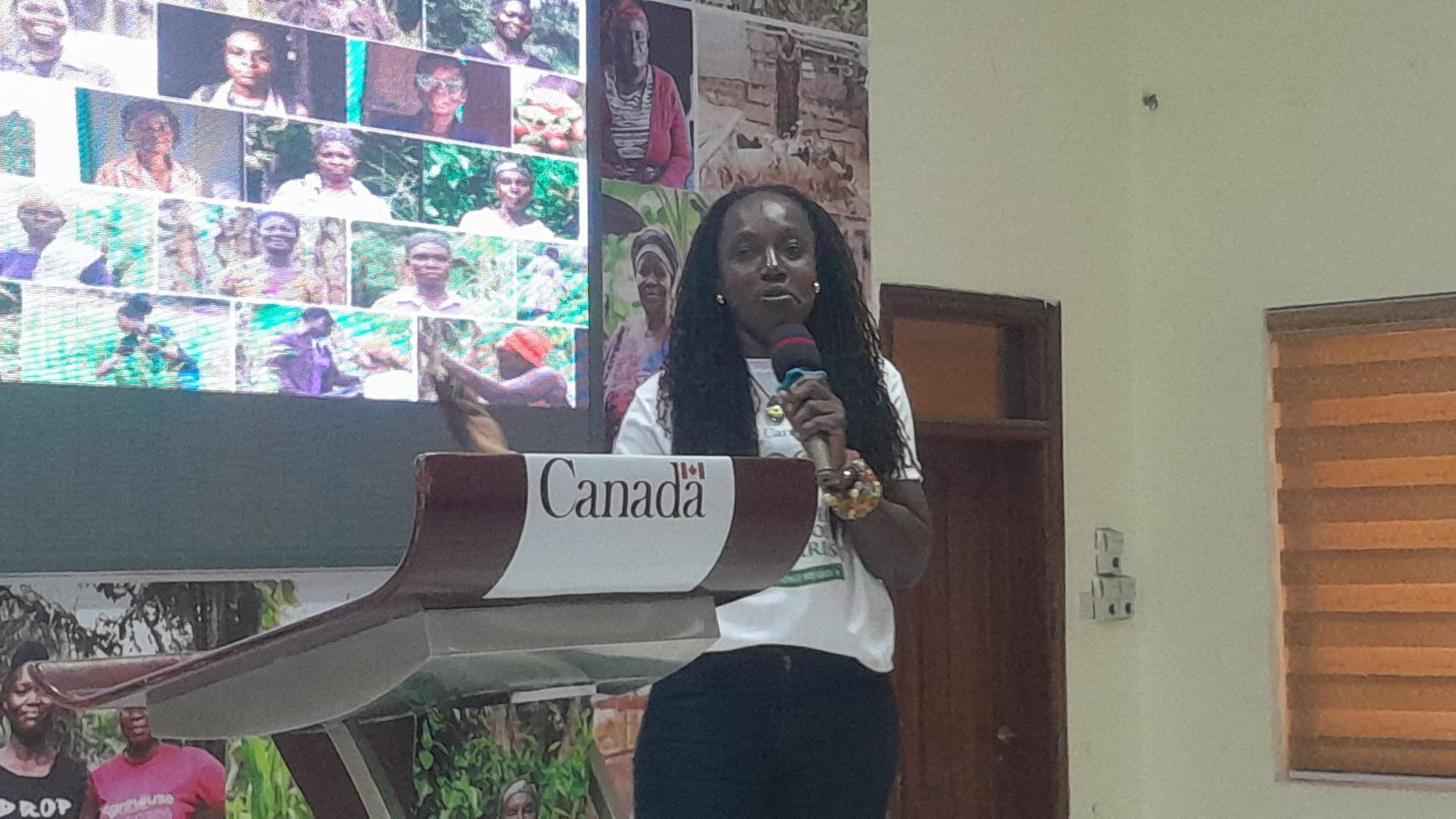Africa-Press – Ghana. The Agrihouse Foundation, a non-government organisation (NGO) dedicated to agricultural development and social impact, has trained more than 700 women in the Central Region, in agriculture, to boost their capacity and enhance productivity.
The participants, mostly rural farmers of all age groups as well as persons with disabilities, were drawn from all 22 districts of the region for an intensive practical session.
The women were taken through series of trainings across the agricultural value chain including crop nutrition and protection, mechanisation, livestock, fisheries and aquaculture, value addition, personal branding and packaging, and marketing and social media.
They were also taught how to identify and leverage investment opportunities in the agriculture sector.
A dedicated session was held for farmers with disabilities to address their special needs.
The workshop marked the seventh Women in Food and Agricultural Leadership Training Forum (WOFAGRIC) and Gold in the Soil Awards held in Cape Coast.
The annual forum is a major intervention which recognises and rewards the efforts and contributions of rural women farmers to nation building, identifies their challenges and trains them to break barriers.
The two-day assembly, which brought together policymakers, agriculture entrepreneurs, development partners, queen mothers and farmers and was graced by several dignitaries including Mr Ekow Panyin Okyere Eduamoah, the Central Regional Minister, and Mr John Dumelo, Deputy Minister for Agriculture,
Held on the theme: “Overcoming the barriers to women agribusiness development,” the training forum featured a mini exhibition of commodities, products, inputs and services by some participants.
This year’s forum and awards received significant support from Global Affairs Canada and Yara Ghana, an agriculture organisation focused on increasing the productivity of Ghanaian farmers.
Madam Alberta Nana Akyaa Akosa, the Founder and Executive Director of Agrihouse Foundation, explaining the rationale behind the intervention, highlighted the struggles of women in farming, particularly those living with disabilities and the need for urgent support.
Madam Akosa observed that they were limited by numerous challenges such as the lack of access to land, lack of financial support and limited knowledge and skills in agricultural practices.
“These rural women farmers, especially those with disabilities are working so hard to feed our communities, districts, and the nation and we feel that if they are able to get more support, they will better,” she said.
Having held the training forum for some eight regions already, Madam Akosa, touted the tremendous impact it had had on the farmers since 2018.
“It has strengthened market linkages for the women with many of them exporting their commodities to various parts of the globe and some of them have become key decision makers, advancing the sector and dragging the youth along,” she said.
Madam Akosa said farmers who participated in the forum had formed unions and cooperatives to push their cause, adding that “they have started making enough money to fend for themselves and their families.”
Mr Eduamoah, the Regional Minister, commended the Foundation and its partners for the initiative as it would improve food security, indicating that agriculture was at the heart of Africa’s development.
He recognised the tremendous contribution of women to agriculture in Ghana but regretted how they remained largely marginalised in terms of training, financing, land, equipment, among others.
He observed that women formed 52 per cent of the agriculture labour force and contributed 70 per cent to the food basket and thus, empowering them would increase food production exponentially.
The Regional Minister reiterated government’s commitment to supporting women through various policies and initiatives such as the women’s bank and rallied the support of all citizens to make them successful.
Mr Eduamoah further expressed the Central Regional Coordinating Council’s readiness to bridge all gaps to ensure women thrived fully in agribusiness, stressing that the resilience and creativity of women were invaluable to agriculture.
Dr Peter Kofi Omega, the Regional Director of Agriculture, patiently explained government’s Feed Ghana initiative and related programmes and entreated all citizens, particularly the youth to leverage them.
The programmes offered opportunities in vegetable farming, starchy foods plantation, livestock and poultry, he noted.
While at it, Dr Omega expressed frustration over devastating activities such as sand winning, illegal mining, and estate development which were fast destroying farmlands and affecting food production and urged immediately action against same.
Dr Isaac Tweneboah-Koduah, a lecturer and agriculture consultant taught the participants to master their craft, add value to their business innovatively, brand and market themselves, and offer exceptional customer service.
Dr Marta Catminati, agriculture and safety expert with the Italian Agency for Development Cooperation (AICS), encouraged the women to go into the rearing of ruminants like goats and sheep to generate additional income.
Mr Mathieu Lacasse, the Second Secretary at the Canadian High Commission in Ghana, stated that the initiative by Agrihouse was essential to building an inclusive and equitable society where women could thrive.
He expressed the Canadian Government’s continuous support for agriculture in Ghana, particularly for women in the field, through various interventions.
Madam Theresa Randolph, Country Manager, Yara Ghana, cautioned that Ghana would not achieve full growth in agriculture if women were continuously marginalised.
She therefore urged deliberate measures to eliminate all barriers, while pledging Yara Ghana’s commitment to the cause.
For More News And Analysis About Ghana Follow Africa-Press







